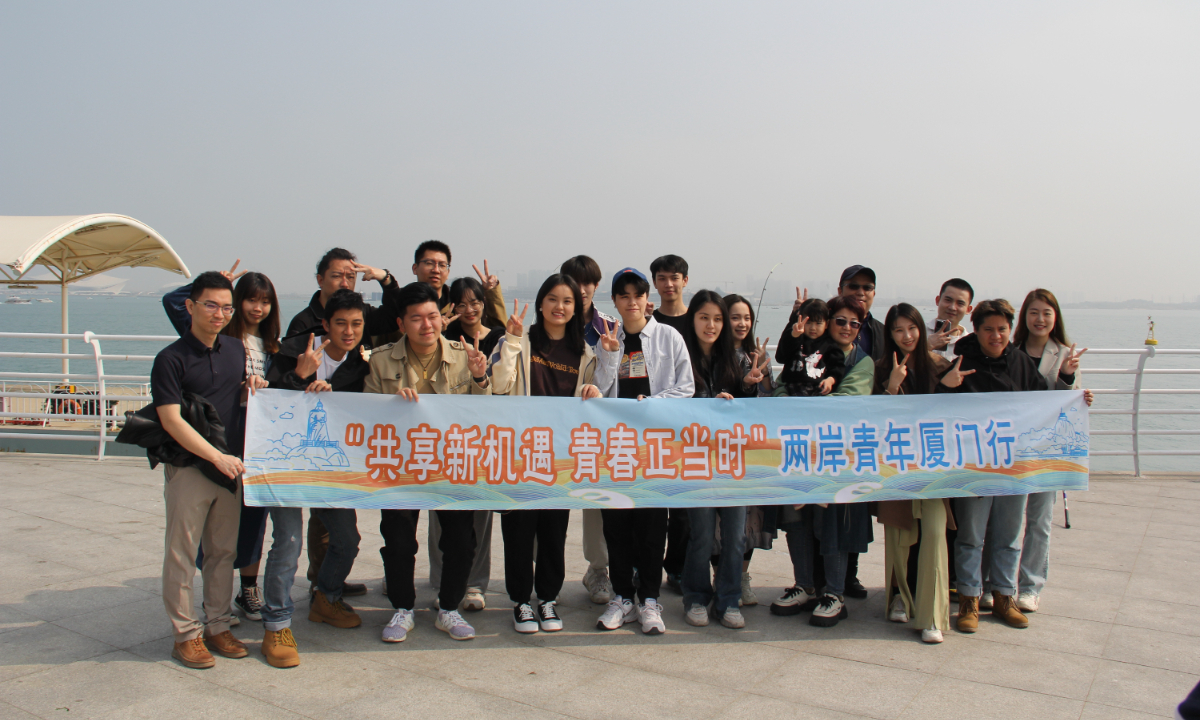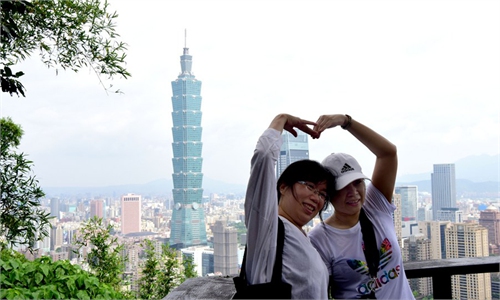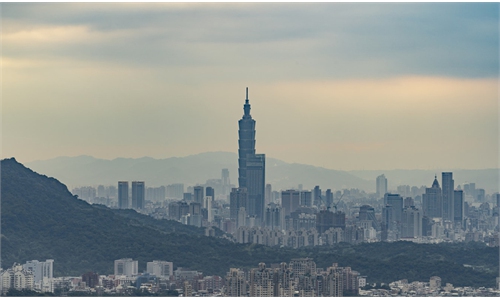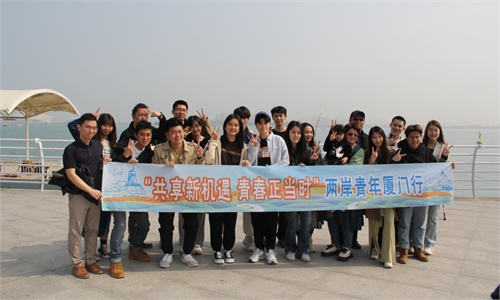
A group of Taiwan youth poses at the Wutong Ferry Terminal, Xiamen, southeast China's Fujian on March 17, 2023. Photo: Wang Qi/Global Times
The Chinese mainland welcomes former Taiwan regional leader Ma Ying-jeou's visit and is willing to offer necessary assistance for his trip, a spokesperson for the Taiwan Affairs Office of the State Council said in a release on Monday.
Ma is planning to visit the Chinese mainland from March 27 to April 7 together with young students from the island. His trip, which will make him the first former Taiwan leader to visit the mainland in 74 years, is expected to write a new chapter in the development of cross-Straits relations, observers said.
Ma is scheduled to pay tribute to his ancestors and visit several mainland cities, including Nanjing, Wuhan, Changsha, Chongqing and Shanghai, according to the Ma Ying-jeou Culture and Education Foundation.
Paying respect to one's ancestors is a shared tradition for people across the Straits and promoting exchanges among young people can inject new energy into peaceful cross-Straits development, the Taiwan Affairs Office press release noted.
Ma's scheduled trip has been interpreted as a "landmark" as he will be the first former leader of the island to visit the mainland, against the backdrop of deteriorating cross-Straits relations due to the Democratic Progressive Party (DPP) authority's collusion with the US.
Ma's trip will be a breakthrough in promoting cross-Straits exchanges, Li Fei, a professor at the Taiwan Research Institute at Xiamen University, told the Global Times.
Zhang Wensheng, deputy dean of the Taiwan Research Institute at Xiamen University, believes that given the increasingly tense ties between the mainland and Taiwan during Tsai Ing-wen's term and with the urgent call for peace made by Taiwan residents as reflected in last year's local election, Ma's visit will answer these voices and ease the tensions created by the DPP authority.
Ma will take the students to a number of universities for exchanges, as well as visit historical sites related to the 1911 Revolution led by the late statesman Sun Yat-sen and the War of Resistance against Japanese Aggression (1931-45).
"Exchanges between young people from the mainland and Taiwan have been interrupted for years, and I hope to take the opportunity of this visit to boost interactions between youths of both sides," Ma noted.
Ma's schedule reflects a personal sentiment, a respect for history and expectations for the future, experts said.
According to local media reports, Ma's trip will not include Beijing, as he hopes to avoid bringing political effects that could add to the complex situation, or being used by some campaigns to attack and influence next year's regional election in January.
KMT Chairman Eric Chu Li-luan gave his blessings to Ma's trip and said he hoped that the visit would promote peace across the Straits.
Ma has long sought to make a trip to the mainland. When asked in 2019 if he wished to visit the mainland, he gave a definite "yes," saying that he had never been there despite working on cross-Straits relations for over 30 years.
However, the DPP authority barred him for carrying out his plan until May 2021. Experts noted that as Ma and Tsai hold different views on the 1992 Consensus and have different policies - with Ma promoting peaceful development with the mainland while Tsai busying herself running after the US, the DPP authority did not want the trip to happen.
It is also worth noting that Ma's visit has coincided with Tsai's scheduled trip to the US to meet with US House Speaker Kevin McCarthy in an attempt to add fuel to the already tense cross-Straits relations.
"It could be that the 'coincidence' is a deliberate one to show that the KMT and DPP are going in different directions in their mainland policies," Zhang noted.





